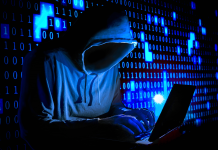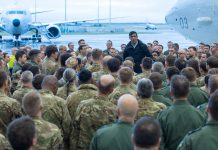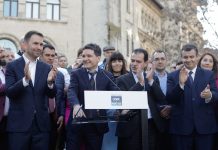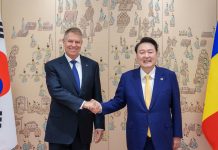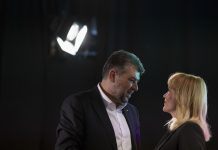Spare a thought for the war crimes investigators sifting through the horrors at Bucha. This ravaged town and its mutilated victims constitute Europe’s worst massacre since Srebrenica in 1995. And all of it has to be recorded.
There are no good days for war crimes investigators. Only bad ones. Bucha and a great swathe of northern Ukraine is now full of people doing important work: delivering aid, standing guard, or broadcasting the truth to the world. Meanwhile, the investigators just sift.
But their work is vital for the jigsaw of evidence being assembled by the International Criminal Court. That grim knowledge will sustain them as they retrieve bullet casings, interview witnesses and photograph the ghastly reality.
This job can break people. Years ago, American investigator Stephanie Frease was in the team excavating Srebrenica’s mass graves. “One day, you know, it was just boom, I can’t do this, I can’t do this today,” she told me when I interviewed her for my book. It was another investigator on the team who gave her strength to carry on. “He said, you know, you’ve got to be able to think about giving these people a voice. In doing this, you are allowing them to somehow speak again.”
The same scenes will be playing out now in Ukraine’s killing fields. However horrific the task, the investigators, Ukrainian and foreign, know their work is the first step on the war crimes ladder.
A war crimes case is like any criminal case, in that first you need a crime scene. That means details of the victims and how they died. With forensics and eye-witness accounts locked up, the next step is identifying the trigger-pullers. And for that you need a very different kind of evidence. The kind stored on hard drives in air-conditioned bunkers thousands of kilometres away. The kind held by Nato.
No war in modern history has been as closely-watched as Nato has watched Ukraine. Flight tracking websites show the armada of military planes in the skies over Poland, Romania and the Black Sea. They are part of a huge intelligence umbrella, gathering communications intercepts, satellite photographs and radar imagery. Within this mass of data is information about who was pulling the trigger at the war crimes sites. Some of it from the mouths of the killers themselves, via mobile phone calls Russian soldiers make to each other.
Germany’s security service, the BND, has already revealed to parliament some of this intelligence, this week playing MPs a chilling tape of a Russian commander saying: “First question the soldiers, then shoot them.”
In the weeks and months to come, investigators will be matching this intelligence to the grisly crime scenes. Get enough matches, and they can show these were not one-off crimes, but a pattern.
That allows them to take the final step and target the people at the top. And for this bit of the case, fate has given them a helping hand.
Modern war crimes trials have a reputation for being long and difficult, because it is hard to link atrocities on battlefields with commanders far away. The two biggest trials of recent years were those of Slobodan Milosevic and Charles Taylor, the first president of Serbia, the second of Liberia. They were very different cases, but each took four years, and much of that was because the crimes were committed by paramilitaries. There was no formal link between these presidents, in their comfortable palaces, and the armed gangs spreading mayhem in distant forests and mountains.
Proving those links took years, and involved burrowing though financial records to show that, yes, each president was the pay master of their paramilitary forces.
There will be no such problems for the Ukraine case, because the Russians themselves provide the link from the battlefield to the Kremlin. The units carrying out these massacres are regular units, from an established chain of command. Each layer of that command is equally responsible for the atrocities.
A common misperception in war crimes trials is that a commander is only guilty if he ordered the crimes. Not so. In fact, the doctrine of command responsibility says that a commander is responsible for the crimes his units commit.
Put simply, your units do the crime, you do the time. That applies even to presidents. Being a head-of-state does not give you immunity for war crimes, as Milosevic and Taylor found out the hard way.
There are defences to the charges, if commanders can show they tried to prevent the crimes, or punish those responsible. So far, the Kremlin is doing neither. It continues to unleash its fury on the population of Mariupol far to the south.
ICC prosecutors are tight-lipped on their intentions, but it looks like there is enough evidence already to convince judges there is a case to answer, which is what you need for an indictment.
Prosecutors don’t need to indict the junior commanders before working their way to the top. The ICC showed that in 2011, when Libyan security forces tried to crush the Arab Spring revolution. The first man charged by the court was Libya’s dictator, Muammar Gaddafi. The ICC can do the same again and aim straight for the generals in the Kremlin and Russia’s commander-in-chief, Vladimir Putin.
As with Libya, Ukraine indictments could be ready in a matter of months. Gaddafi was charged just three months after investigations began, and in Libya, the ICC had no access to the crime scenes.
Two charges look likely: War crimes and crimes against humanity. The first is for crimes on the battlefield, the second for when the war is itself a crime, with civilians the target.
A third charge of genocide is less certain. Genocide is a powerful term, the crime-of-crimes, but it has a tight legal definition. Unlike the other two charges, genocide demands proof that it was specifically ordered. Without evidence of such orders, the charge will likely fail. It is possible that Nato has intercepted communications of those orders being given. Without them, the ICC will struggle to make a genocide case.
War law experts say that shouldn’t matter. Crimes against humanity is as a grave a charge as genocide, and also carries a life sentence. The bigger question is whether anyone will ever come to trial.
The ICC has no police force. It can’t make the Kremlin’s warlords come to court, and they are unlikely to turn themselves in.
Sanctions are one possible answer. In 2001, Serbia handed over Milosevic in return for desperately-needed financial aid. Maybe a future Russian regime, facing economic collapse, will do the same. Or maybe the ICC will get lucky. Maybe some Russian indictee will be arrested if they set foot abroad. Or have their plane forced down, or be captured sailing their yacht on the open seas. Yet there is a good chance Russia will remain walled-off for years. Maybe decades. Maybe nobody will ever be arrested for these horrors, and the dock at The Hague will remain empty.
For investigators sifting amid the mud the detritus at Bucha, those are questions for another day. Their priority now is the same as was for Frease all those years ago, in giving the dead a voice.
Christopher Stephen is a seasoned British war correspondent who has covered conflicts for the Guardian and other media. He reported the conflict in Moldova in 1992, the wars in Bosnia 1994, Kosovo in 2000, Afghanistan in 2001 and then Libya in 2011.
He is author of Judgement Day: The Trial of Slobodan Milosevic, published by Atlantic Books UK in 2004 and Atlantic Monthly Press US in 2005.
Vladimir the Destructive. Poker face Putin shows his true colors




